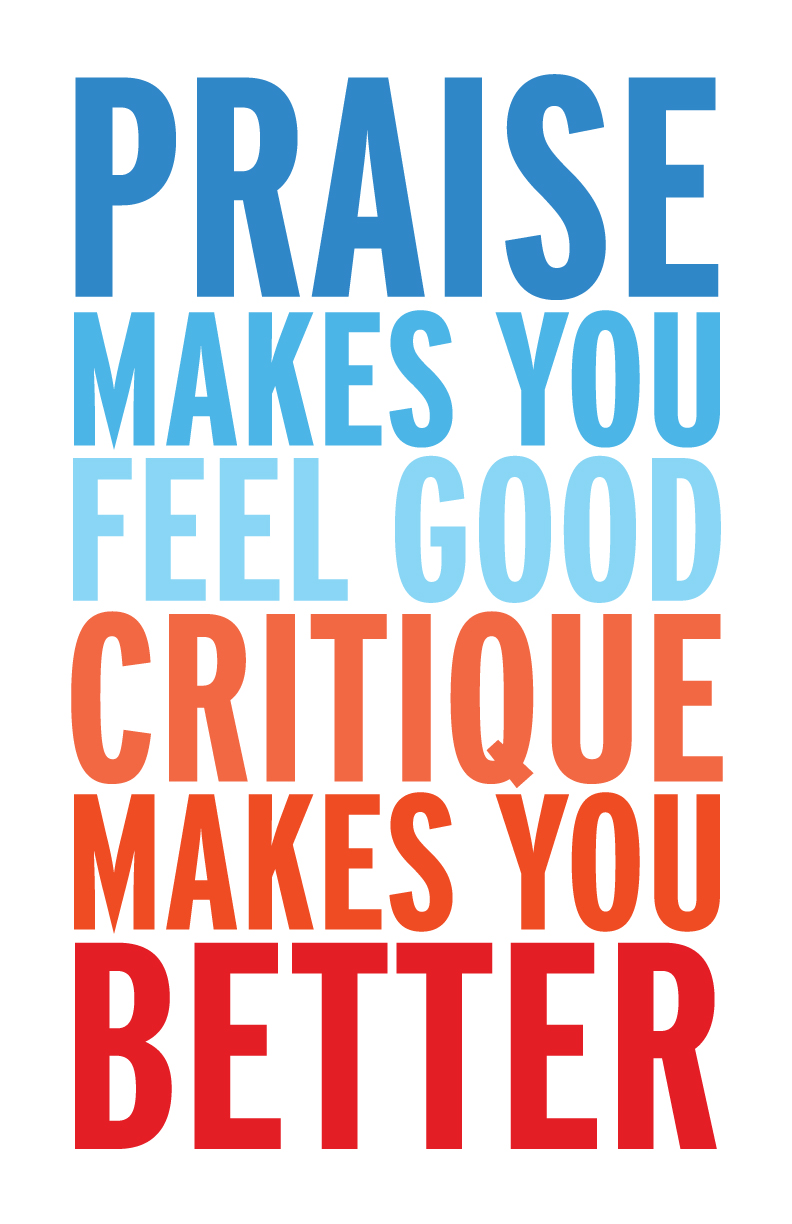The articles I read were:
- Overcoming the Fear of Feedback
- Why rejection hurts so much -- and what to do about it
- The Difference Between Praise That Promotes Narcissism vs. Healthy Self-Esteem
- Be a Mirror: Give Readers Feedback That Fosters a Growth Mindset
The article about why rejection hurts was definitely the one that was most useful to me personally. Not only did it cover rejection through criticism, it also covered how social rejections like someone deciding not to go to lunch with you impacts your idea of 'self'. As highly social animals, humans are always looking for positive social interactions and this article really put into perspective how much we crave and need it. Contemporary society allows so many of us to easily reach out to others and either build them up with compliments or break them down with criticism. Since our brains are geared to react stronger towards negative social interactions like criticism, we are bombarded by more criticism than ever in our daily lives.
This article lists out strategies of how to deal with rejection and I would like to try all of them. It is easy to kick your self-esteem when it's already injured by critiques. One of the more important techniques is the one where if one social interaction fails, look for another. Most people usually wallow in their own self pity after being rejected or criticized and forget that life goes on and you can find social connections in another way.
I have had quite a bit of experience in giving feedback in my classes throughout college and high school. I took AP Lit and AP Lang in high school and had to do plenty of peer reviews. Even in some my classes now, peer evaluations are important. In the beginning, it was hard to give out critiques but I think some good techniques are not to use extreme words. Try to express yourself in the most neutral and constructive way possible. Although the word criticism has a negative connotation and sounds like you're beating someone down, construction criticism is meant to build them up; so remember to look at what they are doing well in addition to what they need to work on. But at the same time, do not rain praise on someone just because you do't want to hurt their feelings.
I used to get shaken up a lot by negative feedback and I would silently chastise myself for not doing better. However, through the years, I have gotten much better at dealing with it. I think the best way to cope with negative feedback is to know that someone is only letting you know to help you become better. In addition to that, there are so many different aspects of a single human being that only one critique cannot diminish your self-worth or intelligence. I think the best way to describe critiques is trial and error because criticism is largely subjective. Take that critique and see what happens. If it doesn't work out, take a different critique and apply it to that same problem.
"Praise makes you feel good. Critique makes you better" quote.
Posted by Amanda Meredith at Writer's Ramblings.

No comments:
Post a Comment